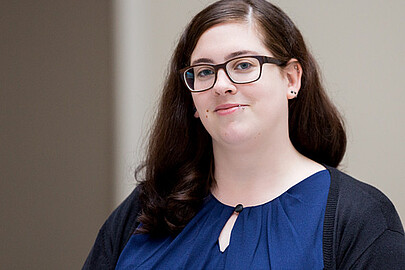If you are pregnant, please contact:
or 0511-762 5750
If you are pregnant, you will certainly have some questions. Who do I have to report what to, and when? What deadlines have to be considered? What support services are available? How do I organise my return to work after parental leave? What options are there for organising working hours? We will advise you independently and confidentially.
The working conditions to which a pregnant or breastfeeding employee or their child is exposed are assessed and hazards are evaluated. These include, for example, contact with hazardous substances, special physical demands or overtime and night work. Based on this risk assessment, any necessary protective measures are defined and implemented. This means, for example, adapting the workplace, changing tasks, transferring employees if necessary or even banning them from working in the workplace, e.g. for laboratory work.
The protection periods for the pregnant employees are six weeks prior to and eight weeks after the birth (12 weeks for premature or multiple births). The protection periods after the birth are mandatory, the 6 weeks before can be suspended under special circumstances following a written declaration.
The mother can be exempted from work for examinations and breastfeeding (§7 MuSchG).
For the interruptions in work during the maternity protection periods (6 weeks before and 8 weeks after childbirth), employees can receive compensation benefits. Women who are members of a public health insurance receive maternity benefits from their health insurance. The health insurance pays a maximum of 13 Euros per calendar day. Women in employment also receive an employer's allowance from their employer. This corresponds to the difference between the 13 Euros and the actual salary - women on maternity leave thus continue to receive the salary they received in the last three months before the protection period. The employer's allowance is therefore paid if the average daily pay exceeds 13 Euros.
Employees who are not members of a public health insurance (private health insurance or non-contributory family insurance with a public health insurance) receive a maternity allowance limited to a total of 210 Euros from the Federal Insurance Office.
Maternity benefit must be applied for at the health insurance fund or the Federal Insurance Office - Bundesversicherungsamt. To do so, you need a certificate from your doctor or midwife stating the expected date of delivery.
You can also find more information here: Rundschreiben "Mutterschutzleistungen" an der LUH (Beschäftigtenportal).
In the event of a change of job due to maternity protection or a (partial or complete) individual ban on employment (Beschäftigungsverbot) outside the protection periods, pregnant women are entitled to maternity pay. This means that they receive at least the average salary earned before the beginning of the pregnancy.
The maternity protection pay is the average (gross) salary of the last three calendar months prior to the start of pregnancy.
Parental allowance (German: Elterngeld):
Parental allowance is a family benefit for parents who look after their child themselves during the first months of life and are not or not fully employed. Parents who
can receive parental allowance, parental allowance plus or partnership bonus for up to 12 months (single parents for up to 14 months).
The basic parental allowance is 300 euros (e.g. for students) - for employed persons, the amount of the parental allowance depends on the income earned in the year before the birth. Up to 65% of the income can be paid. The application for parental allowance is submitted to the parental allowance office (German: Elterngeldstelle) of the municipality where you live or online. Further information can be found here: Federal Family Portal. You should also try the Elterngeldrechner: Parental allowance calculator.
Child benefit (German: Kindergeld):
In Germany, every person who has children and whose place of residence is within Germany can apply for child benefit. Child benefit can be received as soon as the child is born. Further information on child benefit: Federal Employment Agency - Child benefit: Entitlement, amount, duration. The BMFSFJ also has a fact sheet on child benefits: Merkblatt Kindergeld.

